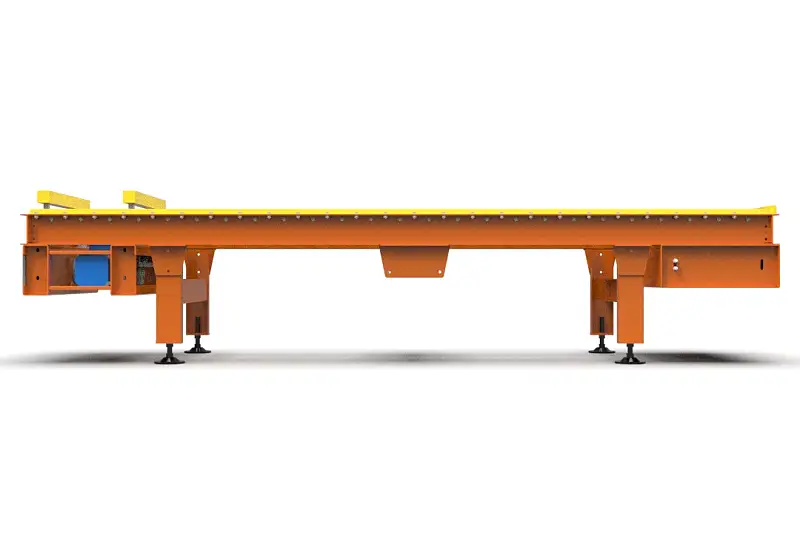Intelligent conveyor systems have emerged as a vital component in driving the digital transformation of the logistics industry. These systems offer numerous advantages, such as improved efficiency, reduced costs, and enhanced safety. However, their development also poses certain challenges that need to be addressed. This article explores the key challenges faced by intelligent conveyor systems and highlights the opportunities they present for future growth and innovation.
I. Standardization and Regulation:
One of the major challenges in the development of intelligent conveyor systems is the need for standardized technical specifications and regulations. As these systems involve multiple technologies and components, it is crucial to establish unified standards and regulations to ensure interoperability, compatibility, and safety across different systems and suppliers.
II. Security and Privacy:
Intelligent conveyor systems rely on extensive data exchange and information transfer, making the security and privacy of data a significant concern. Robust cybersecurity measures and data privacy protection mechanisms must be implemented to prevent data breaches and malicious attacks. Additionally, ensuring the physical security of the systems themselves is paramount to prevent accidents and potential harm to personnel.
III. Cost Considerations:
While intelligent conveyor systems offer long-term cost savings through improved efficiency and reduced labor requirements, the initial investment and implementation costs can be significant. Strike a balance between affordability and desired functionality is crucial to encourage widespread adoption. Continuous innovation and economies of scale can help reduce costs and make these systems more accessible to businesses of all sizes.
IV. Integration with Existing Infrastructure:
Integrating intelligent conveyor systems with existing logistics infrastructure can be a complex task. Compatibility issues and retrofitting challenges need to be addressed to ensure seamless integration with warehouses, distribution centers, and other logistics facilities. Compatibility with existing warehouse management and control systems is crucial to avoid disruptions and optimize system performance.
V. Skilled Workforce and Training:
The successful adoption of intelligent conveyor systems requires a skilled workforce capable of operating, maintaining, and troubleshooting these advanced systems. Proper training and skill development programs are necessary to ensure that the workforce is equipped with the necessary knowledge and expertise to operate intelligent conveyor systems effectively. Collaboration between industry, educational institutions, and government bodies can help bridge the skills gap and support workforce development.
Opportunities for Future Growth:
1. Technological Advancements: Continued advancements in automation, artificial intelligence, and sensor technologies will contribute to the evolution of more intelligent and precise conveyor systems. Developing innovative solutions for enhanced sensing, adaptability, and integration capabilities will unlock new opportunities for efficiency gains and operational excellence.
2. Sustainability and Energy Efficiency: With a growing focus on environmental sustainability, intelligent conveyor systems offer opportunities to develop energy-efficient designs and incorporate renewable energy sources. The application of energy recovery systems and smart power management can reduce energy consumption and carbon footprint, aligning with the global push for sustainable logistics solutions.
3. Data Analytics and Optimization: Leveraging the vast amount of operational data generated by intelligent conveyor systems allows for sophisticated analytics and optimization algorithms. By analyzing this data, businesses can gain valuable insights to optimize material flow, identify inefficiencies, and make data-driven decisions for continuous improvement.
4. Collaborative Networks: Integration with other intelligent technologies, such as robotics and autonomous mobile robots, can create collaborative networks within logistics operations. These networks enable seamless coordination and cooperation between different systems, optimizing workflows and further enhancing efficiency.
While the development of intelligent conveyor systems comes with its challenges, such as standardization, security, and cost considerations, they present exciting opportunities for growth and innovation within the logistics industry. By addressing these challenges and embracing the opportunities, intelligent conveyor systems can revolutionize the way logistics operations are conducted. With continued technological advancements and a focus on sustainability, these systems have the potential to drive significant improvements in efficiency, productivity, and overall supply chain performance.

